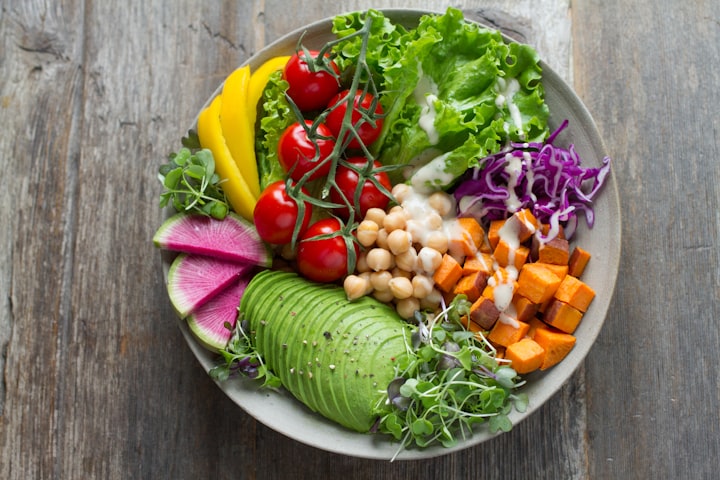
Are you interested in making the switch to a vegan diet but don't know where to start? Don't worry, you're not alone! The transition to a vegan lifestyle can seem daunting, but it doesn't have to be. With these seven vegan starter tips, you'll be on your way to a healthier, more sustainable way of life in no time. From meal planning to finding the right products, these vegan starter tips are sure to get you off to a great start.
1) Do your research
If you’re considering making the switch to a vegan lifestyle, it is important to first take the time to do some research. Learning the basics of veganism, such as what foods to eat and which to avoid, is essential. Researching the health benefits associated with veganism is also beneficial in helping you stick with your commitment. Additionally, exploring the ethical, environmental and economical reasons people choose to go vegan can help to strengthen your motivation and keep you on track.
To get started, begin by browsing through some online vegan resources. There are plenty of websites and blogs dedicated to veganism that can provide helpful information. You can also check out books and documentaries about veganism to learn more about it. Additionally, there are many social media groups and forums for vegans where you can ask questions and find answers from experienced vegans.
Doing your research can help you feel more prepared and confident when it comes to making the switch to a vegan lifestyle. With enough knowledge, you’ll be able to make informed decisions and find the best way for you to transition into veganism.
2) Find your why
When it comes to making any kind of lifestyle change, one of the most important steps is to find your why. Before you jump in and start changing your diet, take some time to reflect on why you want to make the switch to a vegan lifestyle. Ask yourself: What are my motivations? Am I looking to improve my health? Am I trying to reduce my environmental impact? Do I feel more connected to animals and want to help reduce animal suffering?
Once you identify your motivations, it can be helpful to create a vision board or even just a simple list of your reasons for going vegan. This will keep you motivated and remind you why you’re doing this. Your “why” is the foundation for everything you do, and it will keep you grounded and focused throughout your transition.
3) Build a support system
Making the switch to a vegan lifestyle is no easy feat. It can be challenging to maintain your new way of eating if you don’t have people around you who understand and support you. Building a supportive network of like-minded individuals will help you stay motivated and inspired on your vegan journey.
Start by connecting with local vegan groups or finding an online vegan community where you can find tips, recipes, and advice from fellow vegans. It’s always helpful to talk to someone who has gone through the transition themselves. You can also find vegan meetups in your area to attend and connect with more people.
Surrounding yourself with positive vegan role models will be instrumental in sticking to your diet. If you are looking for virtual support, there are plenty of vegan influencers on social media who can provide guidance and inspiration. Additionally, consider joining a vegan accountability group or teaming up with a vegan buddy to stay motivated and accountable on your plant-based journey.
Having a supportive network of individuals who understand your mission is essential for staying the course when it comes to going vegan. Don’t hesitate to reach out and make connections with those who can provide the encouragement and resources you need to achieve success!
4) Meal plan and prep
When it comes to switching to a vegan diet, meal planning and prepping are essential. Meal planning can help you make sure that you’re getting all the necessary nutrients from your vegan diet, while meal prepping can help save you time throughout the week.
Before you start meal planning, it’s important to familiarize yourself with vegan ingredients and cooking methods. Research some vegan recipes online and find ones that look interesting and easy to make. Once you have a good selection of recipes, plan out what meals you’ll be making for the week and shop for any ingredients you may need.
Meal prepping is an important part of the process. Spend one or two days a week prepping food in advance, such as chopping vegetables and making sauces and dressings. This will make it easier to assemble meals during the week. Pre-cooking some grains or legumes can also save you time and make it easier to throw together a meal.
Meal planning and prepping can help you save time and money and make sure that you’re eating healthy and nutritious meals throughout the week. By taking the time to plan ahead, you can make sure that your transition to a vegan diet is both manageable and enjoyable.
5) Consider your lifestyle
Making the switch to a vegan diet can be a big step, but it doesn't have to be overwhelming. When you're starting out, it's important to take the time to consider your lifestyle and how veganism will fit into it.
Think about the foods you usually eat and what kind of ingredients you normally have on hand. Are there vegan alternatives to these items that you can add to your grocery list? It can also be helpful to consider what type of cooking you prefer and make a list of meals that meet your dietary restrictions but still excite you.
Another important factor to consider is what kind of eating schedule works best for you. Do you like having breakfast ready and waiting when you wake up in the morning? Do you prefer meal prepping so that all of your meals are planned out for the week? Planning ahead for your meals can help you stay on track with your vegan goals.
Finally, try to think about which activities you enjoy doing that involve food, such as going out to dinner with friends or ordering take-out. While it may take some extra research, it is possible to find vegan-friendly options in almost any situation. Taking the time to consider how veganism will fit into your lifestyle can help make the transition smoother and ensure that you stay on track with your dietary goals.
6) Ease into it
Making the switch to a vegan diet can be an intimidating process, so take it slow and give yourself time to adjust. You don't have to go cold turkey – literally! Start by reducing the amount of animal products you are eating and incorporate more plant-based foods. Experiment with new recipes and slowly transition away from your non-vegan favorites. For example, try swapping out ground beef for lentils in your taco recipe or make your favorite lasagna but use tofu ricotta. You can also find vegan versions of your favorite snacks such as chips, chocolate bars, cookies, and ice cream.
It's also important to educate yourself about vegan nutrition and understand how to ensure that you are meeting your nutrient needs. Become familiar with essential nutrients for vegans such as iron, B12, and omega-3s and supplement if needed. If you're feeling overwhelmed, consult with a registered dietitian who specializes in vegan nutrition and can provide you with personalized advice.
Most importantly, remember that you don't have to be perfect! Don't feel discouraged if you slip up or have a moment of weakness. Making the transition to veganism is a journey, and it's important to be patient and kind with yourself throughout the process.
7) Have fun with it!
Switching to a vegan lifestyle can seem daunting at first, but it doesn’t have to be. Don’t get too overwhelmed with the details, and take time to enjoy the process of exploring new flavors, textures, and dishes.
Start by browsing through vegan cookbooks and Pinterest boards for ideas of meals and snacks that you can create. You may discover some new favorite recipes that you never would have tried before. Try to experiment with some vegan alternatives to your favorite dishes, such as veggie burgers or plant-based nachos. Get creative and have fun with your meals!
You could also join a local vegan meet-up group to meet other vegans and learn more about the lifestyle. This is a great way to make friends who understand your dietary choices and may even have tips and advice on how to make the transition easier.
Ultimately, transitioning to veganism doesn’t need to be stressful. Take your time, find resources and support that work for you, and enjoy the journey of discovering new foods and flavors. Have fun with it and don’t forget to show yourself grace along the way.
For the Best Vegan cookbook with over 300 recipes, click here now





Comments
There are no comments for this story
Be the first to respond and start the conversation.